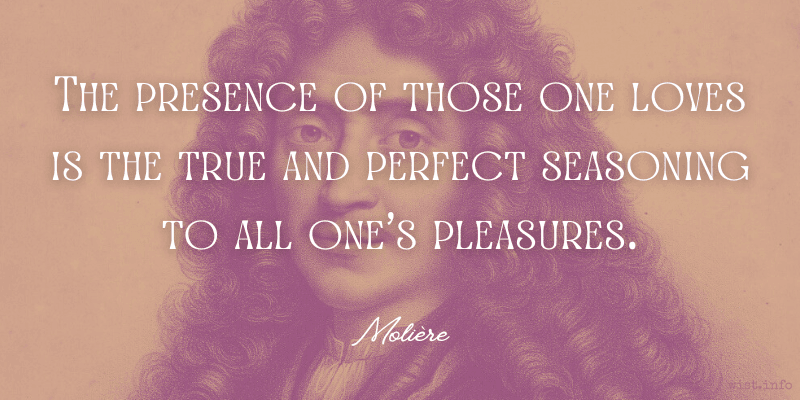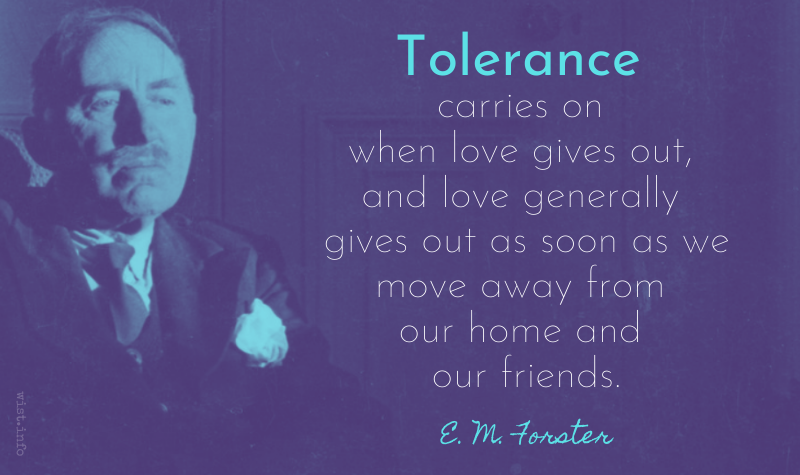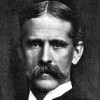Think no Cost too much in the Purchasing [of] good Books; this is next to the acquiring of good Friends. But remember, they are better Ornaments in thy Head than in thy Library.
Thomas Fuller (1654-1734) English physician, preacher, aphorist, writer
Introductio ad Prudentiam, Vol. 2, # 2390 (1727)
(Source)
Quotations about:
friends
Note not all quotations have been tagged, so Search may find additional quotes on this topic.
If men of eminence are exposed to censure on one hand, they are as much liable to flattery on the other. If they receive reproaches which are not due to them, they likewise receive praises which they do not deserve. In a word, the man in a high post is never regarded with an indifferent eye, but always considered as a friend or an enemy.
Joseph Addison (1672-1719) English essayist, poet, statesman
Essay (1711-06-26), The Spectator, No. 101
(Source)
Books should be chosen, as Friends ought to be; few, but choice ones; yet thou may’st have many Acquaintance.
Thomas Fuller (1654-1734) English physician, preacher, aphorist, writer
Introductio ad Prudentiam, Vol. 2, # 1995 (1727)
(Source)
If your children spend most of their time in other people’s houses, you’re lucky; if they all congregate at your house, you’re blessed.
Mignon McLaughlin (1913-1983) American journalist and author
The Second Neurotic’s Notebook, ch. 2 (1966)
(Source)
Being over seventy is like being engaged in a war. All our friends are going or gone and survive amongst the dead and the dying as on a battlefield.
Muriel Spark (1918–2006) Scottish writer, poet, essayist
Memento Mori, ch. 4 [Miss Jean Taylor] (1959)
(Source)
There are three faithful friends, an old wife, an old dog, and ready money.
Benjamin Franklin (1706-1790) American statesman, scientist, philosopher, aphorist
Poor Richard (1738 ed.)
(Source)
Most of our misfortunes are more supportable than the comments of our friends upon them.
Charles Caleb "C. C." Colton (1780-1832) English cleric, writer, aphorist
Lacon: Or, Many Things in Few Words, Vol. 1, § 517 (1820)
(Source)
Life is to be fortified by many friendships. To love, and to be loved, is the greatest happiness of existence. If I lived under the burning sun of the equator, it would be a pleasure to me to think that there were many human beings on the other side of the world who regarded and respected me; I could and would not live if I were alone upon the earth, and cut off from the remembrance of my fellow-creatures. It is not that a man has occasion often to fall back upon the kindness of his friends; perhaps he may never experience the necessity of doing so; but we are governed by our imaginations, and they stand there as a solid and impregnable bulwark against all the evils of life.
Sydney Smith (1771-1845) English clergyman, essayist, wit
Memoir of the Reverend Sydney Smith, by His Daughter, Lady Holland, Vol. 1, ch. 6 (1855)
(Source)
I have never thought there was much to be said in favour of dragging on long after all one’s friends were dead.
Murasaki Shikibu (c. 973 - c. 1014/1025) Japanese novelist, poet, lady-in-waiting [紫式部]
The Tale of Genji [源氏物語], ch. 29 “The Royal Visit [行幸]” [Princess Omiya] (AD 1001-1015) [tr. Waley (1928)]
(Source)
It’s impossible to be loyal to your family, your friends, your country, and your principles, all at the same time.
Mignon McLaughlin (1913-1983) American journalist and author
The Neurotic’s Notebook, ch. 5 (1963)
(Source)
Instinctively we divide mankind into friends and foes — friends, towards whom we have the morality of co-operation; foes, towards whom we have that of competition. But this division is constantly changing; at one moment a man hates his business competitor, at another, when both are threatened by Socialism or by an external enemy, he suddenly begins to view him as a brother. Always when we pass beyond the limits of the family it is the external enemy which supplies the cohesive force. In times of safety we can afford to hate our neighbour, but in times of danger we must love him.
Bertrand Russell (1872-1970) English mathematician and philosopher
Authority and the Individual, Lecture 1 (1949)
(Source)
Collection, with some edits, of the inaugural Reith Lectures, BBC, "Authority and the Individual," No. 1 "Social Cohesion and Human Nature" [14:16] (1948-12-26).
He that has never known adversity is but half acquainted with others, or with himself. Constant success shows us but one side of the world. For, as it surrounds us with friends, who will tell us only our merits, so it silences those enemies from whom alone we can learn our defects.
Charles Caleb "C. C." Colton (1780-1832) English cleric, writer, aphorist
Lacon: Or, Many Things in Few Words, Vol. 1, § 513 (1820)
(Source)
Keep not ill men company, lest you increase the number.
George Herbert (1593-1633) Welsh priest, orator, poet.
Jacula Prudentum, or Outlandish Proverbs, Sentences, &c. (compiler), # 314 (1640 ed.)
(Source)
With books, as with companions, it is of more consequence to know which to avoid, than which to chuse; for good books are as scarce as good companions, and in both instances, all that we can learn from bad ones, is, that so much time has been worse than thrown away.
Charles Caleb "C. C." Colton (1780-1832) English cleric, writer, aphorist
Lacon: Or, Many Things in Few Words, Vol. 1, Preface (1820)
(Source)
Perhaps the greatest rudenesses of our time come not from the callousness of strangers, but from the solicitousness of intimates who believe that their frank criticisms are always welcome, and who feel free to “be themselves” with those they love, which turns out to mean being their worst selves, while saving their best behavior for strangers.
Judith Martin (b. 1938) American author, journalist, etiquette expert [a.k.a. Miss Manners]
Common Courtesy, “Those Who Would Change the Country’s Manners Encounter Citizen Resistance” (1985)
(Source)
That man must be everyone’s personal enemy who has behaved like a public enemy to his own friends. No wise man ever felt that a traitor ought to be trusted.
[Omnium est communis inimicus qui fuit hostis suorum. Nemo umquam sapiens proditori credendum putavit.]
Marcus Tullius Cicero (106-43 BC) Roman orator, statesman, philosopher
In Verrem [Against Verres; Verrine Orations], Action 2, Book 1, ch. 15 / sec. 38 (1.15.38) (70 BC) [tr. Greenwood (1928)]
(Source)
(Source (Latin)). Alternate translations:He is the common enemy of all men who has once been the enemy of his own connections. No wise man ever thought that a traitor was to be trusted
[tr. Yonge (1903)]He is a common enemy who has been a foe to his own people. No man of sense has ever considreed a traitor worthy of credence.
[ed. Harbottle (1906)]
“In society,” M… would say, “you have three sorts of friends: those who love you, those who couldn’t care less about you, and those who hate you.”
«Dans le monde, disait M…, vous avez trois sortes d’amis: vos amis qui vous aiment, vos amis qui ne se soucient pas de vous, et vos amis qui vous haïssent.»
Nicolas Chamfort (1741-1794) French writer, epigrammist (b. Nicolas-Sébastien Roch)
Products of Perfected Civilization [Produits de la Civilisation Perfectionnée], Part 2 “Characters and Anecdotes [Caractères et Anecdotes],” ch. 8 (1795) [tr. Parmée (2003), ¶343]
(Source)
(Source (French)). Alternate translations:“In the world,” remarked some one to me, “you have three kinds of friends: the friends who love you, the friends who do not trouble their heads about you, and the friends who hate you.”
[tr. Hutchinson (1902)]M— said, "In society you have three kinds of friends: your friends who are fond of you, your friends who don’t care either way, and your friends who detest you."
[tr. Merwin (1969)]"In the world," said M..., you have three sorts of friends: the friends who love you; the friends who don't care about you, and the friends who hate you."
[tr. Pearson (1973)]You have three sorts of friend in polite society, M— used to say. Friends who are fond of you; friends who are unconcerned about you; friends who detest you.
[tr. Dusinberre (1992)]"There are three sorts of friends in high society," M— used to say. "Friends who are fond of you, friends who don't care about you, and friends who detest you."
[tr. Dusinberre (1992), "Sampler"]
Laugh at your Friends, and if your Friends are sore;
So much the better, you may laugh the more.Alexander Pope (1688-1744) English poet
Epilogue to the Satires, Dialogue 1, ll. 55-56 (1738)
(Source)
The question was once put to him, how we ought to behave to our friends; and the answer he gave was, “As we should wish our friends to behave to us.”
[ἐρωτηθεὶς πῶς ἂν τοῖς φίλοις προσφεροίμεθα, ἔφη, “ὡς ἂν εὐξαίμεθα αὐτοὺς ἡμῖν προσφέρεσθαι.”]
Aristotle (384-322 BC) Greek philosopher
Attributed in Diogenes Laërtius, Lives and Opinions of Eminent Philosophers [Vitae Philosophorum], Book 5, sec. 11 [tr. Yonge (1853)]
(Source)
(Source (Greek)). Alternate translations:To the question how we should behave to friends, he answered, "As we should wish them to behave to us."
[tr. Hicks (1925), sec. 21]When asked how we should act towards friends, he said “as we would pray they act towards us!”
[tr. @sentantiq (2016)]When asked how we should behave to friends, he said, "As we would wish them to behave to us."
[tr. Mensch (2018)]
Dear George:
Remember, no man is a failure who has friends.
Thanks for the wings!
Love, Clarence.Frank Capra 1897-1991) Italian-American film director, producer, writer [b. Francesco Rosario Capra]
It’s a Wonderful Life (1946) [with Frances Goodrich, Albert Hackett]
(Source)
And bad luck reveals those who are not real friends, but just happen to be so because of utility.
[ἡ δ᾽ ἀτυχία δηλοῖ τοὺς μὴ ὄντως [20] ὄντας φίλους, ἀλλὰ διὰ τὸ χρήσιμον τυχόντας.]
Aristotle (384-322 BC) Greek philosopher
Eudemian Ethics [Ἠθικὰ Εὐδήμεια], Book 7, ch. 2 / 1238a.19-20 [tr. Reeve (2021)]
(Source)
(Source (Greek)). Alternate translations:Misfortune shows those who are not really friends, but friends only for some accidental utility.
[tr. Solomon (1915)]Misfortune shows those who are not friends really but only because of some casual utility.
[tr. Rackham (1981)]But misfortune shows those who are friends not really but because of chance utility.
[tr. Simpson (2013)]
Most artists, ashamed of their need for encouragement, try to carry their work to term like a secret pregnancy. … We bunker in with our projects, beleaguered by our loneliness and the terrible secret that we carry: We need friends to our art. We need them as desperately as friends to our hearts. Our projects, after all, are our brainchildren, and what they crave is a loving extended family, a place where “How’d it go today?” can refer to a turn at the keys or the easel as easily as a turn in the teller’s cage.”
Julia Cameron (b. 1948) American teacher, author, filmmaker, journalist
“Taking Heart,” The Sound of Paper (2005)
(Source)
Continuous association with base men increases a disposition to crime.
[Φαύλων ὁμιλίη συνεχὴς ἕξιν κακίης συναύξει.]
Democritus (c. 460 BC - c. 370 BC) Greek philosopher
Frag. 184 (Diels) [tr. Freeman (1948)]
(Source)
Cited in Diels as "184. (194 N.)"; collected in Joannes Stobaeus (Stobaios) Anthologium II, 31, 90.
Alternate translations:
- "Frequent association with the wicked increases a disposition to vice." [tr. Barnes (1987)]
- "Associating with scoundrels frequently increases the possession of wickedness." [tr. @sententiq (2020), Fr. 234]
- "By associating with scoundrels, you will turn out a scoundrel"
- "Continuous association with the wicked increases bad character."
ACASTE: The presence of those one loves is the true and perfect seasoning to all one’s pleasures.
[C’est un merveilleux assaisonnement aux plaisirs qu’on goûte que la présence des gens qu’on aime.]
Molière (1622-1673) French playwright, actor [stage name for Jean-Baptiste Poquelin]
Le Misanthrope, Act 5, sc. 4 (1666) [tr. Wilbur (1954)]
(Source)
Reading a letter from Céliméne to Clitandre.
(Source (French)). Alternate translations:The presence of all those we love is an excellent relish to our pleasures.
[tr. Van Laun (1878)]The presence of people we love gives a wonderful relish to pleasures.
[tr. Mathew (1890)]It is a wonderful seasoning of all enjoyments to think of those we love.
[tr. Wormeley (1894)]The society fo those we love is a wonderful relish to our pleasure.
[tr. Waller (1903)]The presence of people we like gives a marvelous relish to our pleasures.
[tr. Page (1913)]The presence of people one is really fond of is the best seasoning for social amusements.
[tr. Bishop (1957)]A marvelous seasoning for the pleasures we enjoy is the presence of the persons we love.
[tr. Frame (1967)]
[Tolerance] carries on when love gives out, and love generally gives out as soon as we move away from our home and our friends.
E. M. Forster (1879-1970) English novelist, essayist, critic, librettist [Edward Morgan Forster]
“The Unsung Virtue of Tolerance,” radio broadcast (Jul 1941)
(Source)
Published as "Tolerance," Two Cheers for Democracy (1951)
Animals are such agreeable friends — they ask no questions, they pass no criticisms.
George Eliot (1819-1880) English novelist [pseud. of Mary Ann Evans]
“Mr. Gilfil’s Love Story,” ch. 7, Scenes of Clerical Life (1857)
(Source)
We can have no better clue to a man’s character than the company he keeps.
Niccolò Machiavelli (1469-1527) Italian politician, philosopher, political scientist
The Discourses on Livy, Book 3, ch. 34, § 2 (1517) [tr. Thomson (1883)]
(Source)
Alternate translations:One can have no greater indication of a man than the company that he keeps.
[tr. Mansfield / Tarcov (1996)]There can be no clearer indication about a man than the company he keeps.
[tr. Bondanella / Bondanella (1997)]
Man has three friends on whose company he relies. First, wealth — which goes with him only while good fortune lasts. Second, his relatives — they go only as far as the grave and leave him there. The third friend, his good deeds, go with him beyond the grave.
The Talmud (AD 200-500) Collection of Jewish rabbinical writings
(Attributed)
I could not find an actual citation for this quotation, but the story (the explanation of a parable, in which a man is summoned before a king, and while his dearest friend will not go with him, and his second best friend will only go to the palace gates, his least-loved friend goes with him before the throne) shows up with different translation in multiple sources:
- The Talmud: Selections, Part 5 "Civil and Criminal Laws -- the Holy Days" - "The Day of Atonement" [tr. Polano (1876)].
- Isaac Aboav, Lamp of Light [Menorat Hamoar] [14th C], Fifth Lamp "Teshuvah," Sec. 2 [ch. 3] in Leonard Kravitz and Kerry Olitzky, <i>Journey of the Soul: Traditional Sources on the</i> Teshuvah (1995).
- Talmudic and Other Legends [tr., comp. Weiss (1888 ed.), "Man's Three Friends" (Pirke R. Eliezer).
Be very circumspect in the choice of thy company. In the society of thine equals thou shalt enjoy more pleasure; in the society of thy superiors thou shalt find more profit. To be the best in the company is the way to grow worse. The best means to grow better is to be the worst there.
Under a tyranny, most friends are a liability. One quarter of them turn “reasonable” and become your enemies, one quarter are afraid to speak, and one quarter are killed and you die with them. But the blessed final quarter keep you alive.
Of all the horrid, hideous notes of woe,
Sadder than owl songs or the midnight blast,
Is that portentous phrase, “I told you so,”
Utter’d by friends, those prophets of the past,
Who, ‘stead of saying what you now should do,
Own they foresaw that you would fall at last.
Good friends, good books, and a sleepy conscience: This is the ideal life.
Mark Twain (1835-1910) American writer [pseud. of Samuel Clemens]
Note (1898-07-04), Mark Twain’s Notebook, ch. 21 “In Vienna” (1935) [ed. Albert Bigelow Paine]
(Source)
Written while summering at a resort outside of Vienna. Paine notes, "Written in the Archduchess's album" (referring to Marie Theresa of Austria).
But this truth from long experience I assert, that he who has the most friends and the fewest enemies, is the strongest; will rise the highest with the least envy; and fall, if he does fall, the gentlest, aud the most pitied.
Lord Chesterfield (1694-1773) English statesman, wit [Philip Dormer Stanhope]
Letter to his son, #293 (11 Nov 1752)
(Source)
I am not altogether on anybody’s side, because nobody is altogether on my side, if you understand me.
J.R.R. Tolkien (1892-1973) English writer, fabulist, philologist, academic [John Ronald Reuel Tolkien]
The Lord of the Rings, Vol. 2: The Two Towers, Book 3, ch. 4 “Treebeard” [Treebeard] (1954)
(Source)
Perhaps travel cannot prevent bigotry, but by demonstrating that all peoples cry, laugh, eat, worry, and die, it can introduce the idea that if we try and understand each other, we may even become friends.
Maya Angelou (1928-2014) American poet, memoirist, activist [b. Marguerite Ann Johnson]
Wouldn’t Take Nothing for My Journey Now, ch. 2 “Passports to Understanding” (1993)
(Source)
To be glad of life because it gives you to chance to love and to work and to play and to look up at the stars — to be satisfied with your possessions but not content with yourself until you have made the best of them — to despise nothing in the world except falsehood and meanness, and to fear nothing except cowardice — to be governed by you admirations rather than by your disgusts — to covet nothing that is your neighbors except his kindness of heart and gentleness of manners — to think seldom of your enemies, often of your friends, and every day of Christ; to spend as much time as you can in God’s out-of doors — these are the little guideposts on the foot-path to peace.
Henry Van Dyke (1852-1933) American clergyman and writer
“The Foot-path to Peace,” Tacoma Times (1 Jan 1904)
(Source)
Often shortened to: "Be glad for life because it gives you the chance to love and to work and to look up at the stars."
Don’t be dismayed at good-byes.
A farewell is necessary before you can meet again.
And meeting again, after moments or lifetimes,
is certain for those who are friends.Richard Bach (b. 1936) American writer
Illusions: The Adventures of a Reluctant Messiah, ch. 18, epigraph (1977)
(Source)
I live in the crowd of jollity, not so much to enjoy company as to shun myself.
Samuel Johnson (1709-1784) English writer, lexicographer, critic
The History of Rasselas, Prince of Abissinia, ch. 26 (1759)
(Source)
Alonso of Aragon was wont to say in commendation of age, that age appears to be best in four things — old wood best to burn, old wine to drink, old friends to trust, and old authors to read.
Francis Bacon (1561-1626) English philosopher, scientist, author, statesman
Apothegms, # 97 (1624)See Alfonso X.


















































